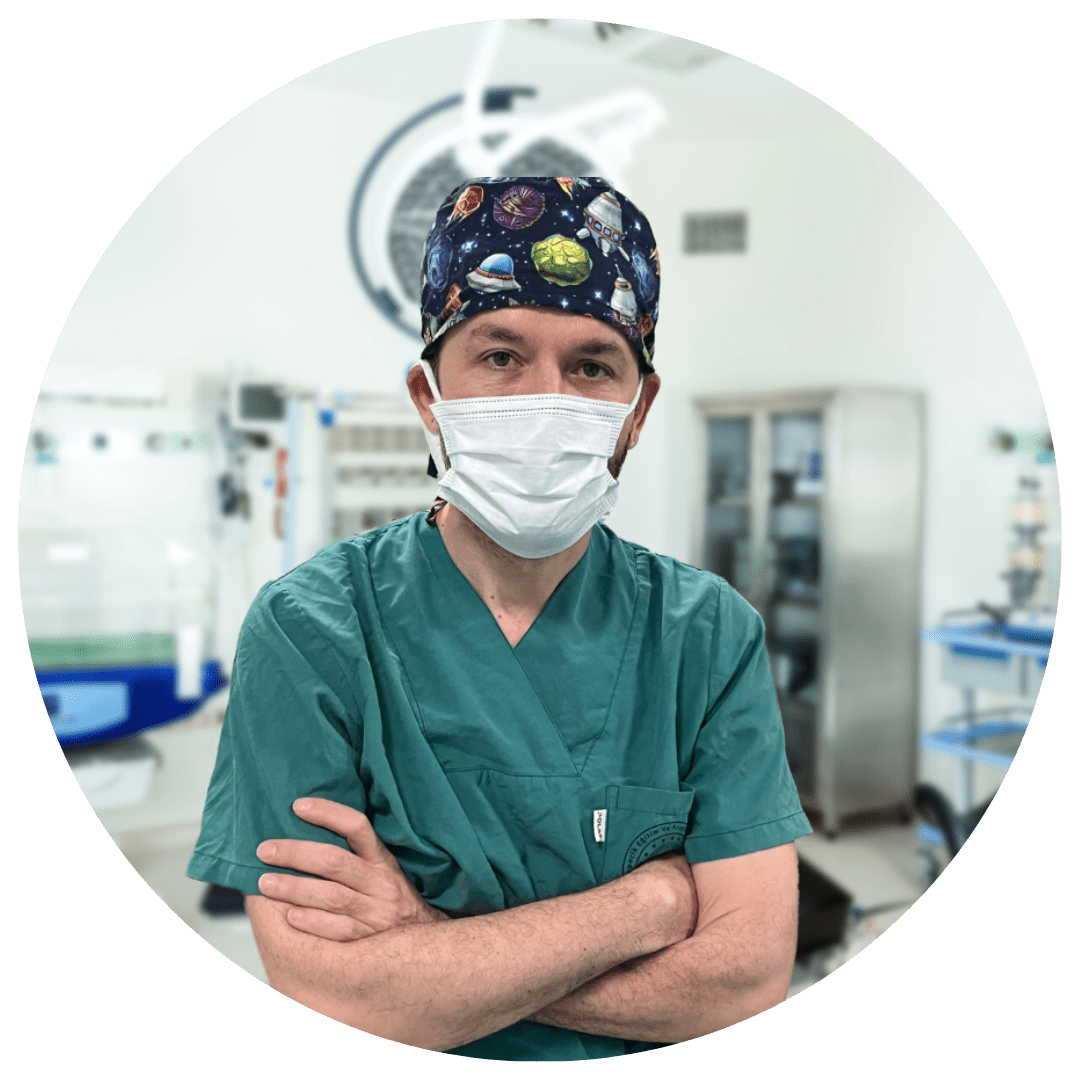- 22 September 2023
- Prof. Dr. Gökhan Koç
- Comment: 0
- Blog
Partial nephrectomy is an important procedure used in kidney surgery. This procedure is used to remove kidney tumors or other diseased tissue. Partial nephrectomy is preferred in cases that do not require removal of the entire kidney and thus helps preserve healthy kidney tissue. Here is important information about partial nephrectomy:
Who is it suitable for?
Partial nephrectomy is especially suitable for patients with kidney cancer or similar kidney diseases. This procedure is preferred when it is not necessary to remove the entire kidney due to the size and location of the tumor. However, if the tumor in the kidney is very large but the patient does not have the other kidney or its functions are poor, partial nephrectomy surgery is attempted again by making all conditions difficult. Since the aim is to preserve intact kidney tissue as much as possible, a treatment plan is created taking into account the health status of the patients and the characteristics of the tumor. Doctors determine the most appropriate treatment option by evaluating the patient’s history, medical history and current health condition.
How is Partial Nephrectomy Done?
Partial nephrectomy is the removal of a tumor in the kidney and is a surgical procedure. During this procedure, open surgical or closed (laparoscopic, robotic) methods are used to access the kidney area where the tumor is located. During open surgery, an incision is made in the patient’s abdominal area and the kidney tumor is accessed. In closed methods, surgeons perform the procedure using smaller incisions, special surgical instruments and a camera. While the tumor is removed precisely by surgeons, an attempt is made to preserve intact kidney tissue. When the procedure is completed, the incision areas are stitched and the healing process begins. Partial nephrectomy is performed by the surgeon selecting the appropriate method depending on the size and location of the tumor and the patient’s health condition. This process prevents the spread of the tumor in kidney cancer treatment while preserving healthy kidney tissue.
Healing Process
The recovery process after partial nephrectomy can often vary depending on the functionality of the other kidney, the complexity of the surgery, and the patient’s general health condition. For the first few days, patients are monitored in the hospital and kept under careful observation after surgery. Post-surgical pain is usually manageable and controlled with painkillers. In the first weeks, patients should avoid heavy exercises and move slowly. Care should be taken against urinary tract infections. The time it takes to return to work varies depending on the patient’s type of job and the complexity of the surgery, but usually takes several weeks. Follow-up and check-ups in accordance with the doctor’s recommendations help preserve the patient’s health in the long term and help monitor kidney functions. The recovery process may vary from person to person, so a customized follow-up plan is required for each patient.
Complications
Partial nephrectomy, like many surgical procedures, can cause some complications. One of the most important of these complications is the risk of bleeding. During surgery, the vessels in the kidney are carefully checked, but in some cases bleeding may occur. There is also a risk of infection. Antibiotics are used to reduce the risk of infection after surgery. Urinary leakage may occur after surgery in patients whose tumor is located a little deeper. Although healing sometimes takes a long time, recovery is achieved with stents placed in the kidney. Additionally, rare allergic reactions to anesthesia may occur. Pain after the procedure is usually felt in the surgery area and may last for a few days, but it is not very disturbing and the patient starts walking even the day after the surgery. These complications are conditions that your doctor carefully monitors and manages after surgery. Every patient is different and risks are evaluated individually. Therefore, it is important to stay in touch with your doctor before and after partial nephrectomy so that any complications can be quickly identified and treated.
Who is it recommended for?
Partial nephrectomy is especially recommended for some patient groups. This procedure should be considered especially in the treatment of kidney cancer or in the management of certain diseases in which part of the kidney does not work. First, the size and location of the tumor are taken into account. Partial nephrectomy is generally preferred if the tumor is small and other kidney tissue is healthy. It is also important for patients with only one kidney or other poor kidney function, because removing the entire kidney will leave the patient without a kidney and requiring dialysis. Finally, some patients may require additional treatment to prevent tumor regrowth. Therefore, taking into account the person’s special situation and needs, a Urologist experienced in the field of ur-oncology should be consulted.
Does it require a second procedure?
Whether a second procedure is required after partial nephrectomy may vary depending on the patient’s specific condition and response to treatment. Since partial nephrectomy surgery is generally preferred for small tumors that have not spread (metastasized) to another place and the aim is to completely remove the tumor and preserve intact kidney tissue during the procedure, no additional procedure is usually required. However, in some rare cases, if there is a tumor in another focus in the body, additional treatments may be needed. These treatments are usually targeted drug therapy. The patient’s doctor will evaluate the patient’s specific condition and advise on the most appropriate course, recommending a second procedure or treatment plan if necessary. Whether a second procedure is required may vary depending on each patient’s specific circumstances, and therefore the doctor’s recommendations are important.
Source:
https://my.clevelandclinic.org/health/treatments/16214-open-partial-nephrectomy

Prof. Dr. Gökhan Koç graduated from Gazi University Faculty of Medicine in 2000. After his graduation, he worked as a research assistant in the urology clinic at Tepecik Training and Research Hospital for 5 years and became a specialist doctor in 2007. He currently provides services in urological surgery in İzmir.




